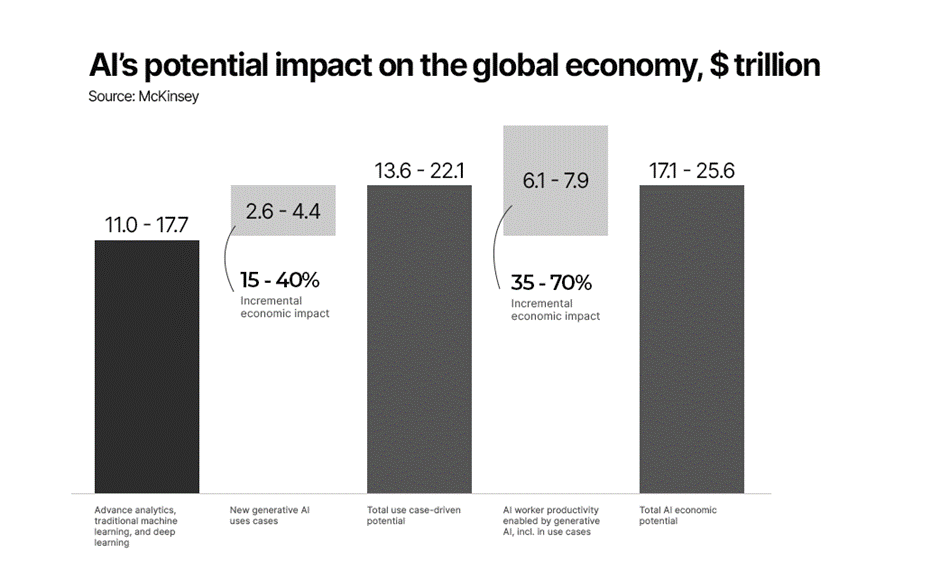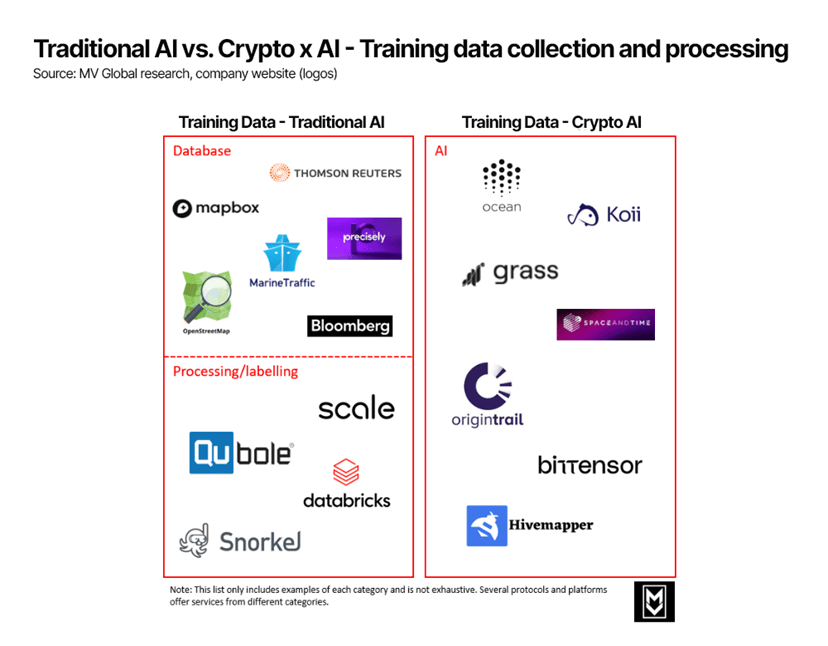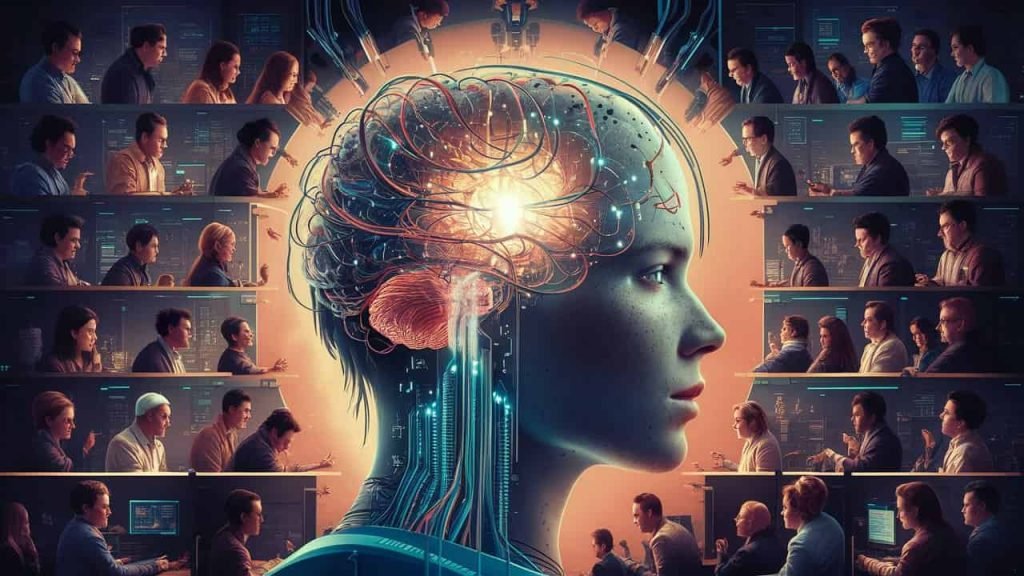- Security and data privacy remain major concerns in AI applications.
- Decentralized projects like Filecoin may help address these issues.
- DePin projects offer computational resources for AI model training.
- Decentralized compute marketplaces aim to reduce GPU costs and shortages.
- Crypto projects use tokenized incentives to drive participation in AI development.
Artificial Intelligence (AI) and cryptocurrency are two of the most transformative technologies of the 21st century. A recent report titled “Crypto x AI: Can Crypto solve the AI scalability challenges?” explores how these fields intersect and the potential they have to solve each other’s challenges.
Published by Johannes Fuchs, CFA, and Tom Dunleavy, CFA, CAIA in July 2024, the report sheds light on the exciting possibilities and hurdles that lie ahead.
Security and Data Privacy in AI

Security and data privacy are significant concerns in AI applications. A McKinsey study highlighted that security is the key risk companies encounter, especially concerning data custody and privacy.
AI systems often require vast amounts of sensitive data, making them attractive targets for cyberattacks. This is where decentralized approaches, offered by various crypto projects, come into play.
For instance, decentralized storage networks like Filecoin are developing compute-over-data applications. These applications allow computation directly on stored data without transferring it to external nodes, thus mitigating the risk of data breaches.
Such technologies could revolutionize how sensitive data is handled in AI applications, offering a more secure alternative to traditional methods.
Decentralized Computing Resources
While some argue that open-source AI frameworks might stifle innovation in crypto projects, there is still considerable value in the AI training segment.
Decentralized Physical Infrastructure (DePin) projects provide computational resources like GPUs and bandwidth essential for large-scale AI model training.

These projects aim to democratize access to high-performance computing, making it easier for smaller players to compete in the AI space.
Decentralized compute marketplaces have emerged as a response to GPU shortages and high costs.
Such marketplaces aim to address inefficiencies in the existing computation market by allowing anyone with unused computing power to contribute.
This could significantly reduce the costs associated with AI model training, making it more accessible to a broader range of developers and researchers.
Network Bandwidth and Tokenized Incentives

Network bandwidth is crucial for the seamless operation of AI applications. Several crypto projects are focusing on peer-to-peer network connectivity protocols and content delivery networks to enhance data transfer speeds and network communication.
Faster and more reliable network connections are essential for the real-time processing capabilities required by many AI systems.
Crypto projects are leveraging tokenized incentives to encourage participation in AI development, training, and inferencing.
This challenges the traditional centralized model of physical infrastructure, offering a new way to distribute computational resources and rewards. Tokenized incentives could potentially attract a diverse group of participants, fostering innovation and collaboration in the AI field.
The Future of AI and Crypto
The report suggests that enabling AI development in an open-source manner is key to democratizing access to this technology.
Open-source solutions are prevalent in both decentralized and non-decentralized ecosystems, so the preference of developers remains to be seen.
AI adoption has already led to increased revenues for many companies, positively impacting product innovation and customer experience.
The emerging field of AI Agents, where autonomous bots use AI models combined with crypto technology, offers new opportunities for economic interactions.
These AI Agents could autonomously execute tasks, negotiate transactions, and even participate in decentralized networks, opening up a plethora of possibilities for future applications.
Follow BITNEWSBOT on Facebook, Linkedin, Twitter, and Google News for instant updates >
Conclusion
The intersection of cryptocurrency and AI holds immense potential. While crypto technologies offer promising solutions to some of AI’s challenges, particularly in security, decentralized computing, and data storage, the field is still evolving.
Both centralized and decentralized solutions are likely to coexist in the future AI ecosystem. Crypto projects could play a significant role in democratizing access to AI technologies and resources, making advanced AI capabilities available to a broader audience.
Investors and cryptocurrency enthusiasts should closely follow these developments, as they are poised to reshape the technological landscape in the coming years.
LATEST POSTS
- Grass Announces Epoch 7, Final Phase of Closed Beta for Open Internet Web Crawl
- Investor Optimism Grows as Solana Shows Signs of Potential Rebound
- BOME Price Provides Optimism Amid Market Fluctuations and Weak Competition
- Judge Concludes Discovery Phase in Binance vs. SEC Case
- Visa Partners with Tangem to Integrate Crypto Wallets with Payments Cards
Previous Articles:
- Grass Announces Epoch 7, Final Phase of Closed Beta for Open Internet Web Crawl
- Investor Optimism Grows as Solana Shows Signs of Potential Rebound
- BOME Price Provides Optimism Amid Market Fluctuations and Weak Competition
- Judge Concludes Discovery Phase in Binance vs. SEC Case
- Visa Partners with Tangem to Integrate Crypto Wallets with Payments Cards
